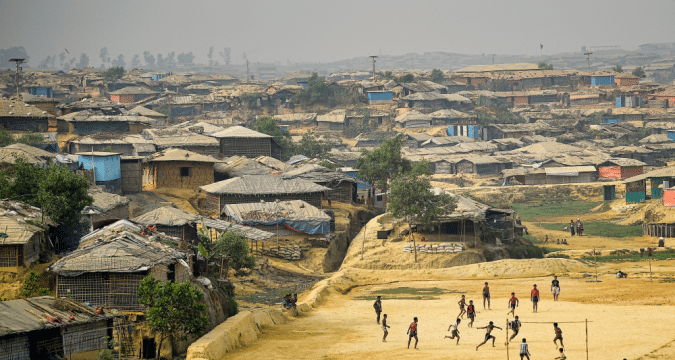
MANDALAY (UCAN): The United Nations (UN) Human Rights Council adopted the Human Rights Situation in Myanmar resolution during the current session of the assembly. It urged Myanmar to grant “full and unhindered access” to the diplomatic corps, independent observers, and representatives of the national and international independent media “without fear of reprisal, intimidation or attack.”
The resolution tabled by the European Union at the 43rd session of the UNHCR in Geneva on June 22, was adopted by a vote of 37-2 with eight abstentions.
The Philippines and Venezuela voted against it while India, Japan, Indonesia and Nepal were among the eight countries who abstained.
The resolution also demanded the lifting of the Internet shutdown in Rakhine and Chin states that has been in place in four townships since 21 June 2019, and five other townships since February 3 this year.
The council decided to extend the mandate of the special rapporteur on human rights in Myanmar for a further year, requested the new mandate holder to present an oral progress report to the council at its 44th and 45th sessions and to submit a report to the third committee at the 75th session of the General Assembly and to the council at its 46th session.
It further requested that the special rapporteur to undertake thematic research with a view to monitoring the implementation of the recommendations made by the independent international fact-finding mission on Myanmar, and to provide detailed updates on the issues covered by the mission in its reports and conference room papers.
The new special rapporteur, Thomas H. Andrews, was appointed in March to succeed Yanghee Lee, who stepped down in April after six years.
Myanmar’s government barred Lee from the country in December 2017 after claiming her reports were biased.
Andrew, a former member of the United States Congress from Maine, has a Washington DC-based consulting practice, Andrew Strategic Services. He has worked with the National Democratic Institute for International Affairs as well as parliamentarians, non-government organisations and political parties in several countries including Cambodia and Indonesia.
He was general secretary of The Nobel Peace Laureate Campaign for Aung San Suu Kyi and the People of Burma in 2001 and was a consultant for the National Coalition Government of the Union of Burma and the Euro-Burma Network.
Kyaw Moe Tun, Myanmar’s permanent representative to the UN, rejected the “Human rights issues must be addressed within the global context through a constructive, non-confrontational, non-politicized, non-selective and dialogue-based approach, and in a fair and equal manner.”
Tun said the sovereign right of a country should be respected. The issue of Rakhine is just one of many challenges Myanmar faces.
He warned that the resolution would in “no way contribute to finding solutions to overcome the challenges we face” but rather impose “serious impediments on our efforts for bringing peace, stability and development” for all the peoples across the country.
More than 700,000 Rohingya were forced to flee their homes in Rakhine due to a bloody military crackdown in August 2017 and they remain in squalid camps in Bangladesh.
A UN fact-finding mission report found that Myanmar’s military committed four of the five acts constituting genocide against the Rohingya.
The report said military chief, Min Aung Hlaing, and five other senior generals must be prosecuted for genocide and war crimes against humanity.
Myanmar’s military has denied atrocities against the Rohingya in Rakhine and insisted its clearance operations were justified in rooting out Arakan Rohingya Salvation Army militants who attacked border posts in August 2017.










